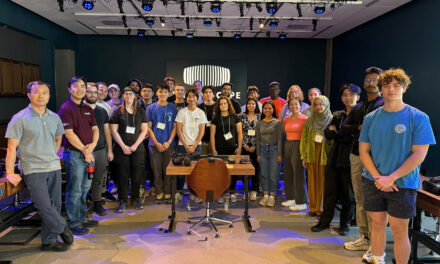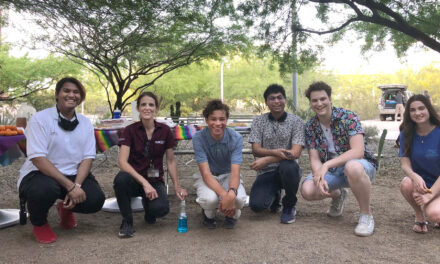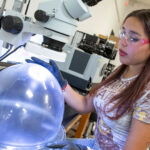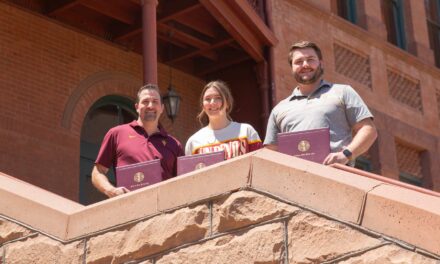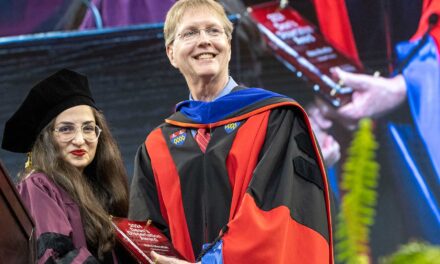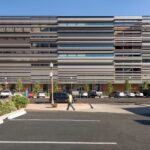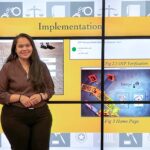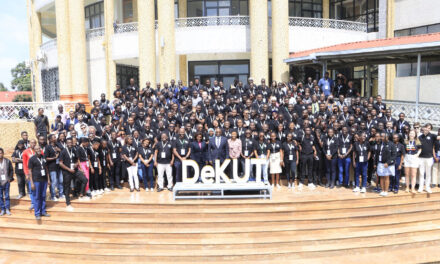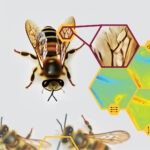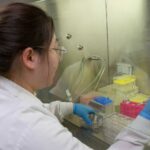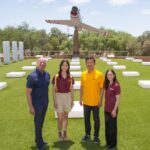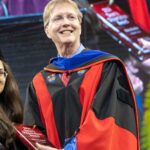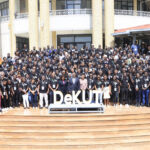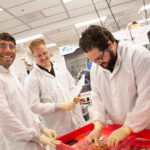
ASU, Pakistani universities partner to power Pakistan’s future
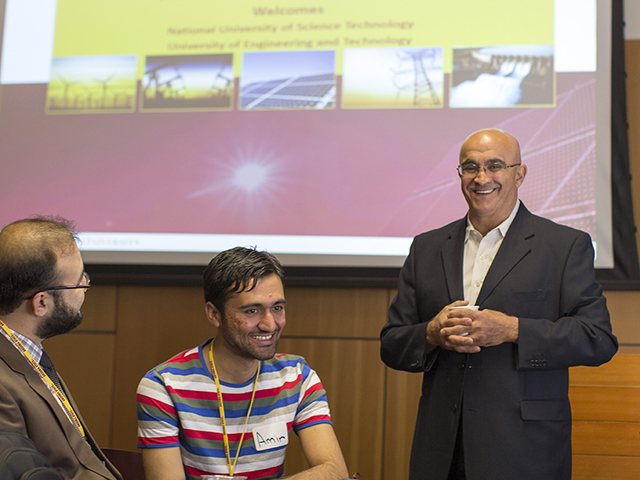
Sayfe Kiaei, right, director of U.S.-Pakistan Centers for Advanced Studies in Energy and a professor of electrical engineering in the Ira A. Fulton Schools of Engineering, welcomes the first cohort of Pakistani exchange students to ASU, Jan. 21, 2016. Photographer: Pete Zrioka/ASU
In January 2016, Arizona State University welcomed 24 exchange graduate students, the first cohort in a partnership with leading Pakistani engineering universities dedicated to researching and developing solutions for Pakistan’s energy needs.
Led by ASU, the U.S.-Pakistan Centers for Advanced Studies in Energy (USPCAS-E) is a collaboration sponsored by the U.S. Agency for International Development (USAID) and Pakistan’s Higher Education Commission. An $18 million award supports the project—the largest ASU has ever received from USAID.
In partnership with the National University of Science and Technology – Islamabad (NUST) and the University of Engineering and Technology in Peshawar (UET), the project aims to address energy needs unique to Pakistan as well as develop relationships between government, industry and academia to inform sustainable policy. In doing so, the project’s goal is to fully unlock Pakistan’s economic potential through an educated and involved workforce.
“This program is designed to further outreach, so our research and our work goes beyond the lab,” said Sayfe Kiaei, director of USPCAS-E and a professor of electrical engineering in the Ira A. Fulton Schools of Engineering. “We’re looking at affecting positive change in the world through engineering.”
Currently, Pakistan faces a host of energy problems; chief among them is that demand for energy exceeds the supply. To mitigate this, planned blackouts routinely leave thousands of Pakistanis without power for hours at a time. In addition to an unreliable supply, electricity can be very expensive due to the reliance on imported fuel sources. Though Pakistan uses merely 5 percent of its total hydroelectric power and solar power remains largely untapped, many of the imported sources are nonrenewable, such as diesel and coal.
These are all problems that ASU is poised to aid in addressing, according to Hassan Zulfiqar, communications and outreach specialist for USPCAS-E.
“Since ASU is helping lead the transition to a future powered by renewable energy, especially solar, it is currently perfectly positioned to help both the partner Pakistani universities in realizing their impact in energy-related policy development, research, scholarship, teaching and workforce development,” he said.
During their time at ASU, the students are tackling a variety of projects, from batteries and fuel cells to energy policy and more energy-efficient buildings.
“Students will get to learn research techniques and ways to take on problems more systematically while working on the latest issues and projects in the field,” said Kiaei. “It is also a cultural exchange, and I hope it will bring them together closely with students here. It’s easy to have a limited view of some parts of the world when you only hear bad news from there. This program provides a different perspective, and allows someone to see the students coming here have the same values and are trying to make a difference, just like the students at ASU.”
Warda Mushtaq, a graduate student from NUST, has enjoyed her ASU experience thus far.
“I think we were all a little shocked at how huge ASU is and just how much research goes on here,” she said of her initial reaction to the university. “I knew coming here that ASU was a top-ranked research school, but it’s one thing to read about it and another to walk through the labs and see the variety of research going on.”
Growing up with routine power outages, working to secure a stable supply of electricity for Pakistan is one reason Warda was drawn to her work in photovoltaics. Pakistan has incredibly high solar insolation, or the amount of sunlight hitting a given area, meaning its potential for solar energy is enormous.
“My research is focused on fabrication of low-cost photovoltaics, so it’s available to everyone in Pakistan, from our largest city to the smallest villages,” she said.
Though she just arrived, one thing Warda looks forward to taking back to Pakistan is the research approach she’s found here at ASU.
“I’ve always thought the focus of all research should be on how something is going to affect your community, what the real-world application is,” said Warda. “I see a lot of that kind of purpose-driven research here, and that’s something I look forward to applying back home.”
The program will continue to bring exchange students to ASU each semester through 2019.
“Both the U.S. and Pakistani governments recognize that a country’s prosperity and quality depends upon the quality of education,” said Zulfiqar. “Hence USAID is investing in USPCAS-E to help produce skilled graduates with the knowledge and dispositions required to make them productive and contributing members of society.”
USPCAS-E is part of an overall $127 million investment by USAID in Pakistan, the U.S.-Pakistan Centers for Advanced Studies program. In addition to ASU and partners’ energy-focused work, U.S.-Pakistan Centers for Advanced Studies in Water(USPCAS-W) as well as Agriculture and Food Security(USPCAS-AFS) are underway. USPCAS-W, led by the University of Utah and Pakistani partner Mehran University of Engineering and Technology aims to address water-related issues and USPCAS-AFS, spearheaded by University of California, Davis and partner University of Agriculture in Faisalabad work toward solutions for food and agriculture problems in Pakistan.
By Pete Zrioka






